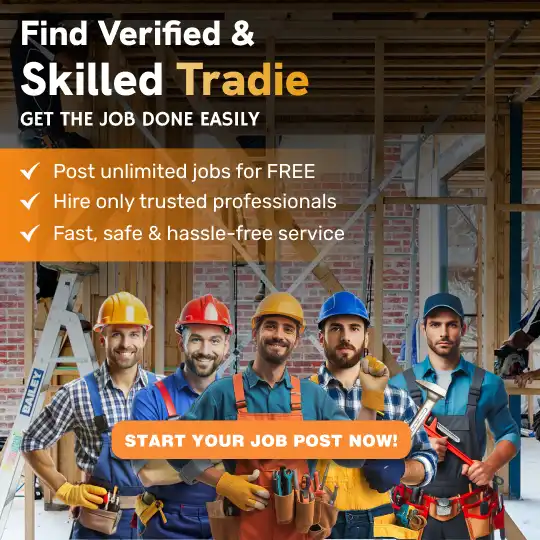Most Essential Construction Skills for Tradies to Succeed

The construction industry is one of the strongest and most reliable fields in Australia. Homes, offices, schools, and public buildings are always being built, renovated, or maintained. Behind every project are skilled tradies who bring it to life with their expertise. But to succeed in this fast-moving industry, tradies need more than just physical strength and tools; they need a mix of construction skills for tradies, knowledge, and professionalism.
In this guide, we’ll explore the top construction skills in Australia, why they matter, and how tradies can use them to grow their careers. Whether you’re just starting out or looking to sharpen your expertise, these insights will help you understand what it takes to thrive in the world of construction.
Why Skills Matter So Much in Construction?
Construction is one of those industries where mistakes can cost thousands of dollars or even risk lives. A wrongly measured cut, poorly installed wiring, or weak foundation can create huge problems. That’s why tradesperson skills for construction are considered the backbone of every project.
The right skills help tradies:
-
Deliver safe and high-quality results.
-
Build trust with clients and employers.
-
Stay competitive in a crowded job market.
-
Take on larger and more complex projects.
-
Grow their careers into leadership or specialist roles.
In Australia, construction is not just about working hard but also working smart. The demand for skilled workers is growing, and those with the essential skills for tradies are the ones landing the best opportunities.
Top Construction Skills in Australia
Construction is a competitive field, and the tradies who stand out are the ones with a mix of practical expertise and professional know-how. From basic tool handling to advanced technical knowledge, these skills are the foundation for success in any project across Australia.
1. Hands-On Construction Skills
At the core of the job are hands-on construction skills. Tradies need to work with tools, equipment, and materials every single day. Whether it’s laying bricks, framing walls, or cutting timber, precision and practice are key.
These skills include:
-
Measuring and marking materials.
-
Using hand tools and power tools safely.
-
Following building codes and construction plans.
-
Performing repairs and maintenance tasks.
Hands-on construction skills are often learned on the job or through apprenticeships, making them one of the first things new tradies must master.
2. Technical Knowledge and Trade Specialisation
Construction is broad, and different trades require specialised knowledge. A plumber, electrician, or carpenter each has unique training and qualifications. For example, plumbing involves understanding water systems and drainage, while electrical work requires deep knowledge of wiring, circuits, and safety regulations.
Specialisation makes a tradie more valuable because they bring expertise that not everyone has. That’s why focusing on construction skilled trades is one of the best career moves.
3. Safety Awareness
Safety is non-negotiable in construction. Every year, accidents happen on sites due to poor practices, lack of training, or negligence. Tradies who are well-trained in safety stand out as professionals.
Essential safety skills include:
-
Proper use of protective gear (helmets, gloves, goggles).
-
Knowledge of site safety protocols.
-
First-aid basics in case of emergencies.
-
Awareness of electrical, fire, and structural risks.
A tradie who follows safety rules not only protects themselves but also ensures the whole team works in a secure environment.
4. Problem-Solving Skills
Construction projects don’t always go as planned. Materials may be delayed, weather can halt outdoor work, or unexpected challenges may appear. That’s where problem-solving for tradies becomes essential.
A skilled tradie thinks on their feet. For example, if a certain type of material isn’t available, they find a safe alternative. Or, if a design flaw is spotted, they work with engineers or supervisors to fix it quickly. Problem-solving saves time, money, and stress on the job site.
5. Reading and Understanding Blueprints
Every construction project starts with a plan. Being able to read blueprints and technical drawings is one of the essential skills for tradies. It ensures the work matches the design and avoids costly mistakes.
Blueprint reading includes:
-
Understanding measurements and symbols.
-
Knowing where plumbing, electrical, or structural elements go.
-
Following step-by-step project instructions.
Without this skill, tradies may misplace fittings, cut materials incorrectly, or misalign structures.
6. Communication Skills
Construction is rarely a solo job. Tradies must work with project managers, other tradies, suppliers, and clients. Strong communication ensures everyone is on the same page.
Good communication means:
-
Explaining technical details in simple language.
-
Listening carefully to instructions.
-
Give clear updates on progress or delays.
-
Resolving conflicts respectfully when issues arise.
This skill is highly valued by clients because it builds trust and makes the work experience smoother.
7. Time Management
Deadlines are a big deal in construction. A delayed project can increase costs and upset clients. That’s why time management is one of the top construction skills in Australia.
Tradies must plan their daily tasks, prioritise urgent jobs, and finish work efficiently without compromising quality. For example, a concreter needs to pour and set concrete within specific time frames, or the whole process could fail.
8. Physical Stamina and Strength
Construction jobs are physically demanding. Carrying heavy materials, climbing ladders, bending, and working long hours outdoors require stamina. While modern tools reduce some of the strain, tradies still need good health and fitness to handle daily challenges.
However, strength alone isn’t enough, proper techniques like safe lifting and correct posture are just as important to prevent injuries.
9. Adaptability and Willingness to Learn
The construction industry is constantly evolving. New tools, technologies, and building methods are being introduced all the time. Tradies who adapt quickly and learn continuously are always ahead.
For example, sustainable building practices and eco-friendly designs are becoming more popular. Tradies with knowledge of these trends can offer more value and find more opportunities.
10. Leadership and Team Management
As tradies gain experience, many move into supervisory or leadership roles. Leading a team requires not only technical skills but also the ability to manage people, delegate tasks, and motivate workers.
Strong leaders create efficient, safe, and productive work environments. This is especially important in large projects where multiple trades are working together.
How Tradies Can Build and Improve Their Skills?
Learning doesn’t stop after an apprenticeship. The construction industry is always changing, and tradies who keep improving are the ones who stay ahead. Building stronger skills not only makes day-to-day work easier but also opens doors to bigger projects and better-paying opportunities. To stay competitive, tradies should:
Take regular training courses: Short courses or certifications help tradies learn new methods, safety standards, or specialised techniques.
Learn from experienced mentors on-site: Working alongside seasoned tradies provides practical knowledge that can’t always be taught in a classroom.
Stay updated on new tools and technologies: From eco-friendly materials to smart construction equipment, keeping up with innovation is essential.
Seek feedback and improve their methods: Listening to supervisors, clients, and even peers helps identify areas for growth.
Join networks like TTN (Trusted Tradie Network): Platforms like TTN connect tradies with resources, training, and job opportunities, making it easier to grow both skills and reputation.
By continuously improving, tradies don’t just grow their abilities, they build long-term careers with more stability and future opportunities.
The Role of TTN in Supporting Skilled Tradies
Trusted Tradie Network (TTN) is a platform that connects skilled workers with clients across Australia. But it’s more than just a job board. TTN values both technical and soft skills, making sure tradies who join the platform are recognised not just for what they do, but how they do it.
For clients, TTN provides peace of mind knowing they’re hiring professionals with verified construction skills for tradies. For tradies, it’s a chance to build their reputation, showcase their skills, and get consistent work. In a competitive industry, being part of TTN can be a game-changer.
Why These Skills Are Future-Proof?
The demand for construction skilled trades is not slowing down in Australia. With population growth, urban expansion, and infrastructure projects, there will always be a need for trained professionals. What’s changing is the type of skills in demand.
-
Eco-friendly construction is on the rise, requiring knowledge of sustainable materials and green practices.
-
Smart homes are becoming more popular, meaning tradies need to understand technology integration.
-
Diverse projects require flexibility, from large commercial builds to detailed residential finishes.
Tradies who combine technical knowledge with adaptability, communication, and leadership will continue to succeed no matter how the industry evolves.
Final Thoughts
Succeeding in construction isn’t just about swinging a hammer or mixing cement. It’s about mastering a wide range of essential skills for tradies, from hands-on construction skills to leadership and problem-solving.
The top construction skills in Australia include technical expertise, safety awareness, communication, and adaptability. These skills don’t just make projects run smoother; they also help tradies build long-term careers with stability and growth.
For anyone looking to enter the field or improve their career, focusing on these tradesperson skills for construction is the smartest step forward. And with networks like TTN (Trusted Tradie Network) supporting skilled professionals, the future of the construction workforce in Australia looks brighter than ever.

